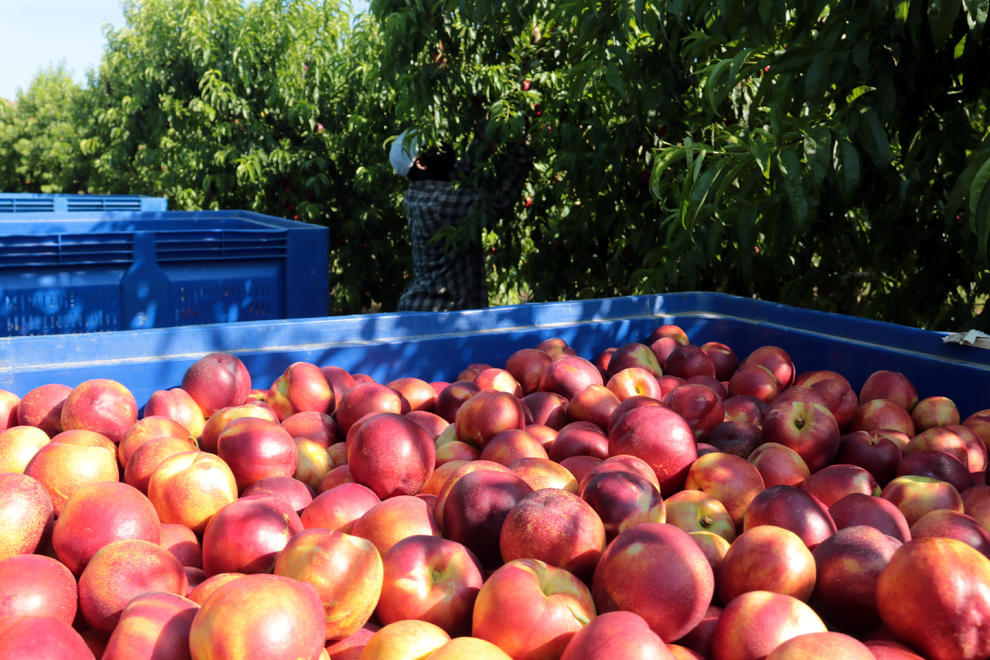Although the drought is affecting agricultural production in Catalonia, supermarkets in the region say they will continue to offer local fruit to their customers.
Although there are likely to be some changes in prices and availability of kilometer 0 products, distributors estimate that this year’s fruit campaign will be better than last year’s, which was the worst in four decades due to frost.
The ASAJA union expects the impact of the drought on crops to have a minimal impact on the consumer, but will see a decrease in local produce on the shelves and to a lesser extent, an increase in prices.
According to Rosa Pruna, president of ASAJA, about 70% of the cereal crops have been lost due to the drought.
Some areas have been able to obtain water through regeneration plants, but those without such a water connection have suffered crop losses.
Local fruits and other products affected by drought
The lack of rainfall has particularly affected wheat and barley crops, which are sown in November.
The rains that were expected in April arrived late in May, which has resulted in the death of crops planted at the right time.
In addition, the growth of weeds due to the rain is favoring the proliferation of fungi. Despite this, distributors are confident that there will be sufficient supply of fruit to meet consumer demand.
In some areas, such as Pla d’Urgell, the situation is catastrophic, and lower availability and higher prices of peaches and nectarines are expected.
However, supermarkets do not anticipate supply problems, since Catalonia is an exporting country and represents only 10% of the destination of the total production of fruits such as nectarines, apples and peaches.
Uncertainty persists in the citrus sector, as it is still early to assess whether the drought will seriously affect the harvest in Terres de l’Ebre.
Rainfall and irrigation restrictions will play a decisive role in the calibers and possible losses. In the olive oil sector, the drought may accentuate the upward price trend due to shortages and low production.
What about wine and rice?
As for wine, beneficial rains during the flowering of the vineyards are expected to keep production at normal levels.
However, prices will not be influenced by the volume of grapes harvested.
On the other hand, rice producers are prepared to face the drought and have contingency plans in case they cannot supply their local markets and the usual demand.

